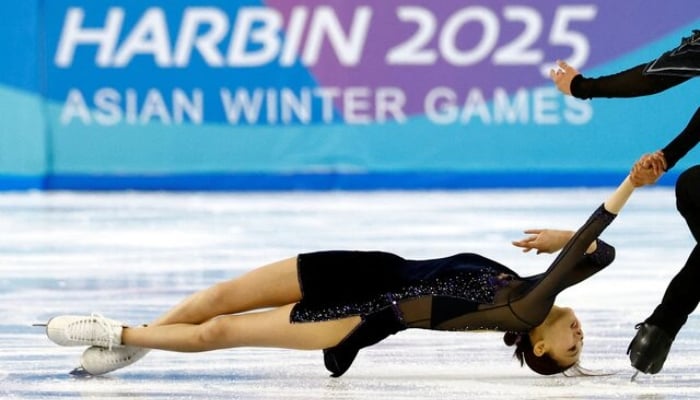China accuses US spies of cyberattacks during Asian Winter Games NSA intended to use cyberattacks to steal the personal data of participating athletes, says news agency BEIJING: The US National Security Agency (NSA) has been accused by Chinese police in the northeastern city of Harbin of launching "advanced" cyberattacks against critical businesses during the Asian Winter Games in February. Following investigations, police accused Virginia Tech and the University of California of being complicit in the attacks and placed three suspected NSA operatives on a wanted list, state news outlet Xinhua said Tuesday. The NSA agents were identified by Xinhua as Katheryn A Wilson, Robert J Snelling and Stephen W Johnson.
The three were also found to have "repeatedly carried out cyberattacks on China's critical information infrastructure and participated in cyberattacks on Huawei and other enterprises." It did not specify how the two American universities were involved. The US Embassy in China did not immediately respond to an emailed request for comment.

The detailed allegations come as the world's two largest economies spiral deeper into a trade war that has already spurred travel warnings for Chinese tourists going to the US and halted imports of US films into China. "The US National Security Agency (NSA) launched cyberattacks against important industries such as energy, transportation, water conservancy, communications, and national defence research institutions in Heilongjiang province," Xinhua said, citing the Harbin city public security bureau. The attacks had "the intention of sabotaging China's critical information infrastructure, causing social disorder, and stealing important confidential information," it added.
Xinhua said the NSA operations took place during the Winter Games and were "suspected of activating specific pre-installed backdoors" in Microsoft Windows operating systems on specific devices in Heilongjiang. In order to cover its tracks, the NSA purchased IP addresses in different countries and "anonymously" rented a large number of network servers including in Europe and Asia," Xinhua said. The NSA intended to use cyberattacks to steal the personal data of participating athletes, the news agency said, adding that the cyberattacks reached a peak from the first ice hockey game on February 3.
The attacks targeted information systems such as the Asian Winter Games registration system and stored "sensitive information about the identities of relevant personnel of the event," Xinhua said. The US routinely accuses Chinese state-backed hackers of launching attacks against its critical infrastructure and government bodies. Last month, Washington announced indictments against a slew of alleged Chinese hackers who targeted the US Defence Intelligence Agency, the US Department of Commerce, and the foreign ministries of Taiwan, South Korea, India, and Indonesia.
Beijing denies all involvement in overseas cyber espionage. After years of being accused by Western governments of cyberattacks and industrial espionage, in the past two years several Chinese organisations and government organs have accused the United States and its allies of similar behaviour. In December, China said it found and dealt with two US cyberattacks on Chinese tech firms to "steal trade secrets" since May 2023, but did not name the agency involved.
Meta faces landmark US antitrust trial Nasa spots 'inactive' supermassive black hole bursting with X-rays WhatsApp introduces chat memory feature for Meta AI Astronomers discover planet's 'death plunge' into star, challenging previous theories.
Technology

China accuses US spies of cyberattacks during Asian Winter Games

China's Yuchen Wang and Lei Zhu perform during the Mixed Pair Skating Free Skating at the Harbin 2025 — Asian Winter Games in HIC Multifunctional Hall, Harbin, China, on February 12, 2025. —ReutersBEIJING: The US National Security Agency has been accused by Chinese police in the...














